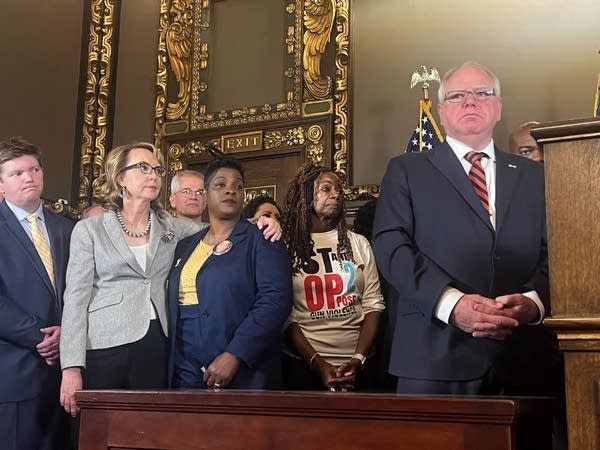Walz signs ‘red flag’ orders, universal background checks for guns into law

Fmr. Arizona U.S. Rep. Gabby Giffords, in the grey blazer, and others celebrated as Gov. Tim Walz signed a public safety budget bill that includes new gun measures on Friday.
Brian Bakst | MPR News
Go Deeper.
Create an account or log in to save stories.
Like this?
Thanks for liking this story! We have added it to a list of your favorite stories.


